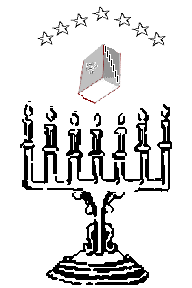Perhaps.
But what does the death of Michael Servetus have to do with the biblical doctrine of salvation and what the Scriptures say about it?
The biblical doctrine of Salvation...
The word is nigh thee, even in thy mouth, and in thy heart: that is, the word of faith, which we preach; That if thou shalt confess with thy mouth the Lord Jesus, and shalt believe in thine heart that God hath raised him from the dead, thou shalt be saved. - Romans 10:8-9
And the Apostle Paul said....
1 And I, brethren, when I came to you, came not with excellency of speech or of wisdom, declaring unto you the testimony of God.
2 For I determined not to know any thing among you, save Jesus Christ, and him crucified.
3 And I was with you in weakness, and in fear, and in much trembling.
4 And my speech and my preaching was not with enticing words of man's wisdom, but in demonstration of the Spirit and of power:
5 That your faith should not stand in the wisdom of men, but in the power of God. - 1 Corinthians 2:1-5
But.... In Sardisean times both Martin Luther and John Calvin would hate folks for not going along with them...
"That seditious articles of doctrine should be punished by the sword needed no further proof. For the rest, the Anabaptists hold tenets relating to infant baptism, original sin, and inspiration, which have no connection with the Word of God, and are indeed opposed to it. ... Secular authorities are also bound to restrain and punish avowedly false doctrine ... For think what disaster would ensue if children were not baptized? ... Besides this the Anabaptists separate themselves from the churches ... and they set up a ministry and congregation of their own, which is also contrary to the command of God. From all this it becomes clear that the secular authorities are bound ... to inflict corporal punishment on the offenders ... Also when it is a case of only upholding some spiritual tenet, such as infant baptism, original sin, and unnecessary separation, then ... we conclude that ... the stubborn sectaries must be put to death." -Martin Luther
"My advice, as I said earlier, is: First, that their synagogues be burned down, and that all who are able toss sulphur and pitch; it would be good if someone could also throw in some hellfire...Second, that all their books-- their prayer books, their Talmudic writings, also the entire Bible-- be taken from them, not leaving them one leaf, and that these be preserved for those who may be converted...Third, that they be forbidden on pain of death to praise God, to give thanks, to pray, and to teach publicly among us and in our country...Fourth, that they be forbidden to utter the name of God within our hearing. For we cannot with a good conscience listen to this or tolerate it. The rulers must act like a good physician who, when gangrene has set in proceeds without mercy to cut, saw, and burn flesh, veins, bone, and marrow. Such a procedure must also be followed in this instance. Burn down their synagogues, forbid all that I enumerated earlier, force them to work, and deal harshly with them. If this does not help we must drive them out like mad dogs." - Martin Luther from the book "On the Jews and their Lies"

